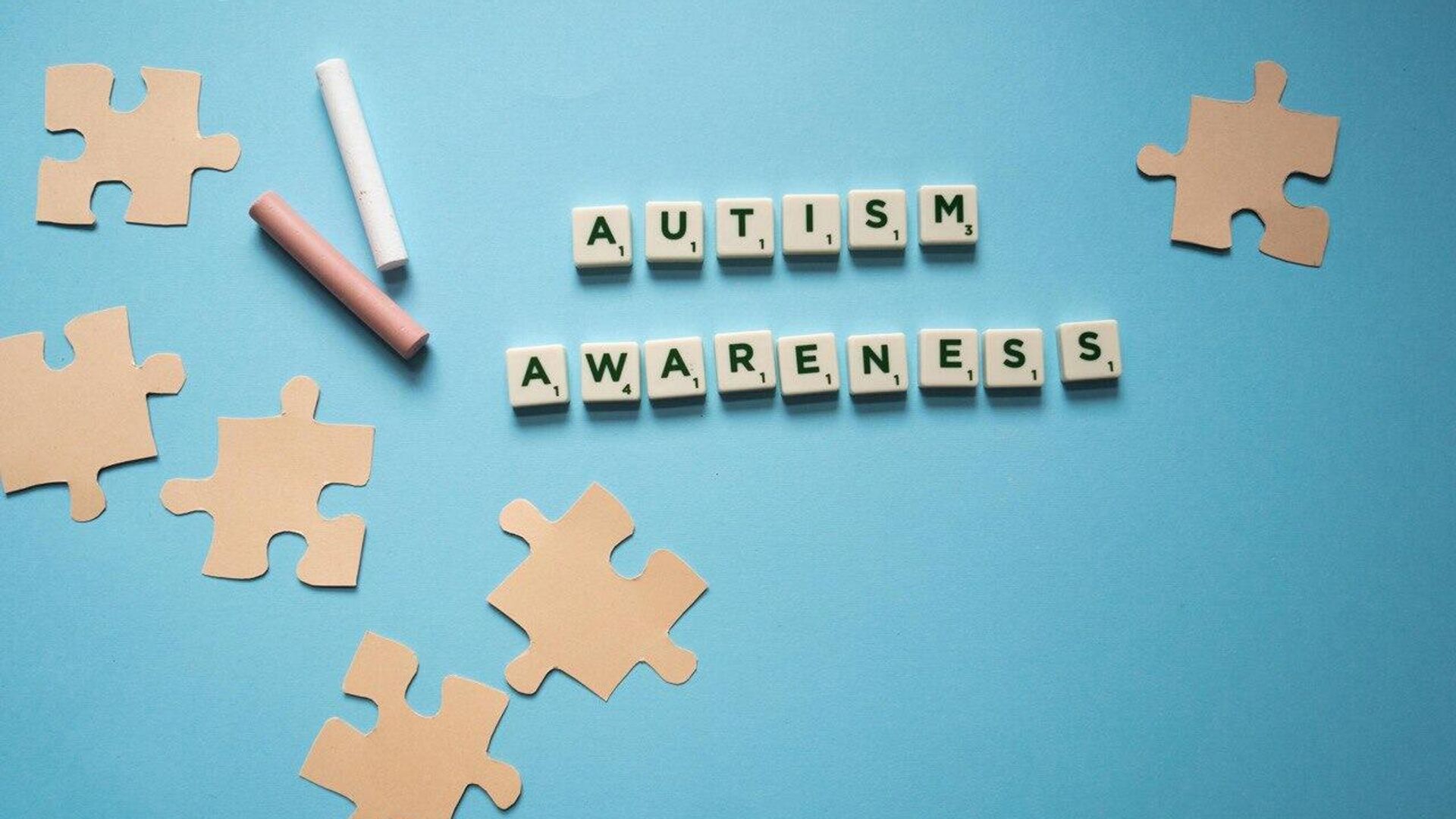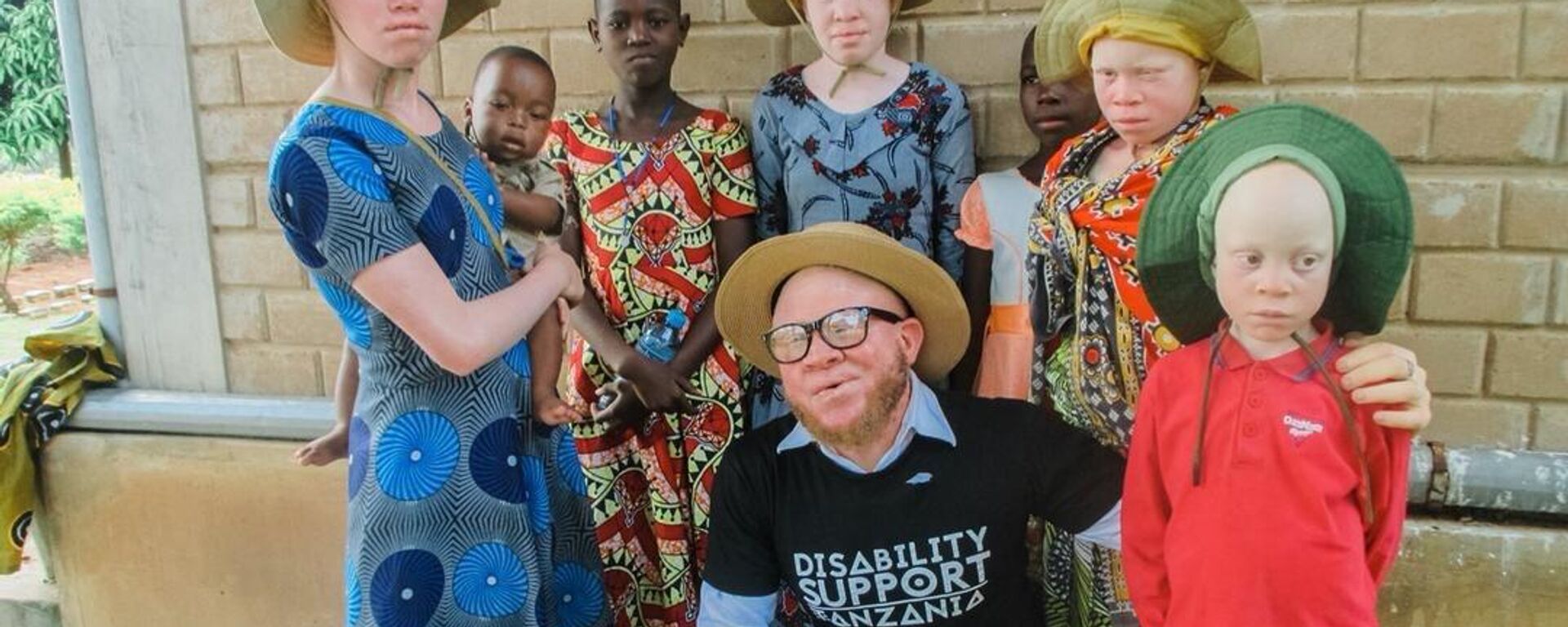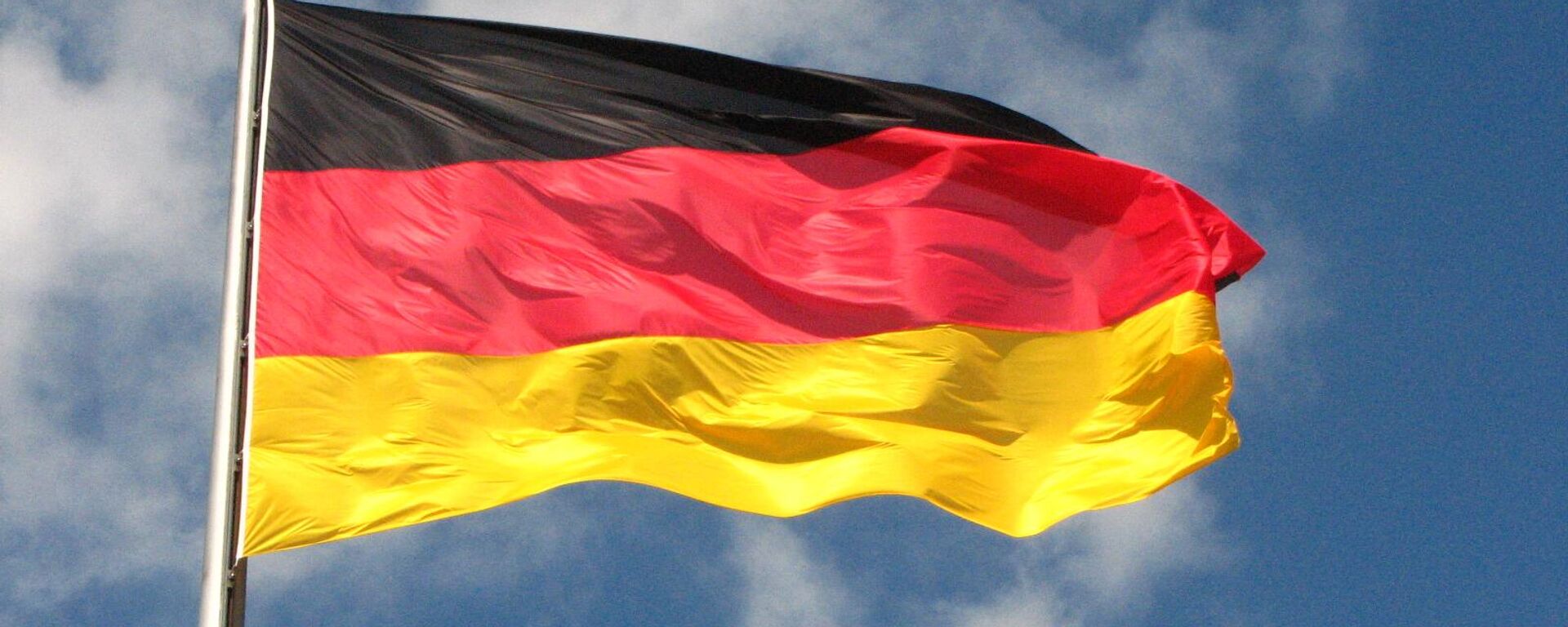https://en.sputniknews.africa/20240402/total-acceptance--inclusion-parent-of-child-with-autism-shares-story-on-world-autism-awareness-day-1065878606.html
Total Acceptance & Inclusion: Parent of Child With Autism Shares Story on World Autism Awareness Day
Total Acceptance & Inclusion: Parent of Child With Autism Shares Story on World Autism Awareness Day
Sputnik Africa
Autism is a neurodevelopmental disorder that is marked by challenges in social communication and the display of repetitive behaviors. April 2 marks World... 02.04.2024, Sputnik Africa
2024-04-02T14:47+0200
2024-04-02T14:47+0200
2024-04-02T14:47+0200
disease
health
ghana
https://cdn1.img.sputniknews.africa/img/07e8/04/02/1065880542_0:121:1280:841_1920x0_80_0_0_8108e4938fcdff1e6800ba61bab3ad29.jpg
In 2018, due to the needs of his daughter, who was diagnosed with autism, Benjamin Asiamah Kuffour from Ghana became a co-founder of the Klicks Africa Foundation, a non-profit, nongovernmental organization in support of people with disabilities (PWDs), Autism Spectrum Disorders (ASDs), Down Syndrome, and other persons with intellectual disabilities.Kuffour recalled that once his family found out that his daughter has autism, they were at first in "the usual denial." However, then, as the disorder "was [then] not widely known in Ghana," they decided to raise awareness about this condition and created a social media page, "my journey with autism," where they shared challenges and successes they faced.Among the challenges that a family with a child living with autism may face, Kuffour named financial constraints due to medical expenses, cultural stigma and misconceptions surrounding the disorder, and the lack of specialized training for parents.Elaborating on the stigma, he underscored that parents raising a child with autism "should be able to overcome self-stigma as parents and accept the child and love him or her just as he or she is." Parents should provide "unconditional support" for their children, Kuffour highlighted, adding, "if you cannot accept your child, how do you expect other people to embrace them?"He also stressed that a parent must be "an advocate" for his child, as "children with disabilities, most of them, cannot advocate for themselves."To help parents overcome these difficulties, the Klicks Africa Foundation, according to Kuffour, approaches "all sort of media that is radio, television, to create awareness and advocacy," approaches churches, and sometimes antenatal clinics, "to explain to pregnant women about these conditions and give them the communication milestones and the red flags to create awareness."The foundation sometimes financially assists families in need and organizes parent group meetings and parent training to show them "how they can also support their children at home," he said.Speaking about the misconceptions about the disorder, Kuffour revealed that some "people think that it is a spiritual disease that is caused by probably some witchcraft," or "others also [falsely] think that it is contagious," and "some also think that it's as a result of poor parenting."However, these are all misconceptions and myths surrounding the disorder, he underlined, adding that the neurodivergent condition "does not make [people diagnosed with autism] disadvantaged" or "does not make them second-class citizens."As for what should be done in Africa to help people with autism, Kuffour emphasized that public education is needed "to raise awareness of the existence of autism and understand the condition," as well as acceptance of children with autism and support their parents.In addition, "advocacy for the rights of the people living with autism" along with inclusion in all institutions is necessary to tackle the problem, Kuffour underscored."Equal access to facilities, equal access to institutions, equal access to opportunities of employment are very, very important," he highlighted, adding that it is needed "to appreciate the fact that every person has something to contribute to society."In conclusion, Kuffour reiterated the importance of total acceptance, inclusion in all institutions for autistic people, and love for them.
https://en.sputniknews.africa/20230613/do-anything-you-want-in-your-uniqueness-how-africas-albinism-activists-tackle-bias-1059878593.html
https://en.sputniknews.africa/20230713/mental-diseases-made-up-most-teenage-hospitalization-cases-in-germany-in-2021-1060505731.html
ghana
Sputnik Africa
feedback@sputniknews.com
+74956456601
MIA „Rossiya Segodnya“
2024
Sputnik Africa
feedback@sputniknews.com
+74956456601
MIA „Rossiya Segodnya“
News
en_EN
Sputnik Africa
feedback@sputniknews.com
+74956456601
MIA „Rossiya Segodnya“
Sputnik Africa
feedback@sputniknews.com
+74956456601
MIA „Rossiya Segodnya“
disease, health, ghana
Total Acceptance & Inclusion: Parent of Child With Autism Shares Story on World Autism Awareness Day
Autism is a neurodevelopmental disorder that is marked by challenges in social communication and the display of repetitive behaviors. April 2 marks World Autism Awareness Day. On this occasion, Sputnik Africa sat down with a Ghanian parent of a child with autism, who is also a co-founder of a foundation in support of people with disabilities.
In 2018, due to the needs of his daughter, who was diagnosed with autism, Benjamin Asiamah Kuffour from Ghana became a co-founder of the Klicks Africa Foundation, a non-profit, nongovernmental organization in support of people with disabilities (PWDs), Autism Spectrum Disorders (ASDs), Down Syndrome, and other persons with intellectual disabilities.
"Our daughter was receiving support at a particular center. Then, at a point, it looked like her needs were not being catered for in that center, so there was a need for us as parents to set up a center which will address the needs of our [daughter]. Then later, we expanded it to cover similar children who have such challenges. It's a parent initiative trying to solve or meet the needs of our child," Kuffour told Sputnik Africa.
Kuffour recalled that once his family found out that his daughter has autism, they were at first in "the usual denial." However, then, as
the disorder "was [then] not widely known in Ghana," they decided to raise awareness about this condition and created a social media page, "my journey with autism," where they shared challenges and successes they faced.
"When we got our diagnosis, we decided that we would let the world know our child's condition. We will let the world know that there are people among us who have also been created this way by no fault of theirs, by no fault of parents; that is how they are," he noted, adding that "some people in Africa and other people are also sharing their children's stories, helping to create awareness. So I must say that there has been a steady progress, but there's more room for improvement; there's a lot we still have to do."
Among the
challenges that a family with a child living with autism may face, Kuffour named financial constraints due to medical expenses, cultural stigma and misconceptions surrounding the disorder, and the lack of specialized training for parents.
"When your child is diagnosed with autism [...] you may have to seek the support of speech therapists, an occupational therapist, behavior therapists, and physical therapists, and all these are very expensive services. [...] So the first one, as far as our part of the world is concerned, is financial constraint. The second one is stigma. A lot of the parents feel shy to even let people know that they have children with such conditions, and it is because of the way society sees this condition. [...] I think the next one, I would say, is the lack of specialized teaching and learning resources to help meet the needs of our children," he explained.
Elaborating on the stigma, he underscored that parents raising a child with autism "should be able to overcome self-stigma as parents and accept the child and love him or her just as he or she is." Parents should provide "unconditional support" for their children, Kuffour highlighted, adding, "if you cannot accept your child, how do you expect other people to embrace them?"
He also stressed that a parent must be "an advocate" for his child, as "
children with disabilities, most of them, cannot advocate for themselves."
"We need to advocate for these children to be accepted; for these children to be included in our society. [...] You, as a parent, should be able to overcome self-stigma and then be able to advocate for the rights of your child," Kuffour emphasized.
To help parents overcome these
difficulties, the Klicks Africa Foundation, according to Kuffour, approaches "all sort of media that is radio, television, to create awareness and advocacy," approaches churches, and sometimes antenatal clinics, "to explain to pregnant women about these conditions and give them the communication milestones and the red flags to create awareness."
The foundation sometimes financially assists families in need and organizes parent group meetings and parent training to show them "how they can also support their children at home," he said.
Speaking about the misconceptions about the disorder, Kuffour revealed that some "people think that it is a spiritual disease that is caused by probably some witchcraft," or "others also [falsely] think that it is contagious," and "some also think that it's as a result of poor parenting."
However, these are all misconceptions and myths surrounding the disorder, he underlined, adding that the neurodivergent condition "does not make [people diagnosed with autism] disadvantaged" or "does not make them second-class citizens."
"These are people with unique abilities; they have strengths, they have areas of weaknesses just as us. Just as we who are neurotypical, we also have strengths and weaknesses. Neurodivergents also have areas of strength and challenge, and therefore do not need to be discriminated against. They need to be supported to be able to address their needs," Kuffour noted.
As for what should be done in Africa to help people with autism, Kuffour emphasized that public education is needed "to
raise awareness of the existence of autism and understand the condition," as well as acceptance of children with autism and support their parents.
"I think the first one is public education to raise awareness of the existence of autism and understand the condition. When we engage in this public education and meaningfully explain to people for them to understand the condition, it will help counteract the misconceptions and misunderstandings, or misinterpretations of what autism is. [...] It should be done all over Africa. [...] The second thing is that I think there must be acceptance. We need to accept the fact that there is another group of people who are neurodivergent," he said.
In addition, "advocacy for the rights of the people living with autism" along with inclusion in all institutions is necessary to tackle the problem, Kuffour underscored.
"The third thing is advocacy for the rights of people living with autism. In my country, where there is free education, I expect that. This free education service should be extended to children with autism. [...] Finally, I encourage inclusion. We should practice inclusion in all our institutions. That is our schools, our communities, and our workplaces. Persons or children with autism should not be discriminated against. Our institutions should embrace them, institutions should have policies that allow them access to education opportunities," he stressed.
"Equal access to facilities, equal access to institutions, equal access to opportunities of employment are very, very important," he highlighted, adding that it is needed "to appreciate the fact that every person has something to
contribute to society."
In conclusion, Kuffour reiterated the importance of total acceptance, inclusion in all institutions for autistic people, and love for them.
"Total acceptance of people with autism by first their families, [it] is very, very, very important; we need to accept them by our communities and the entire society. That is the total acceptance. The second one is that we need to support them to meet their needs. [...] We need to love them as God's creations with unique abilities. These are God's creations, and they also need to be loved, just as we expect other people to love us. So on this occasion, I am advocating that we should extend a hand of love to every child, every person living with autism. And finally, I pray that we practice inclusion in all our institutions," he concluded.



